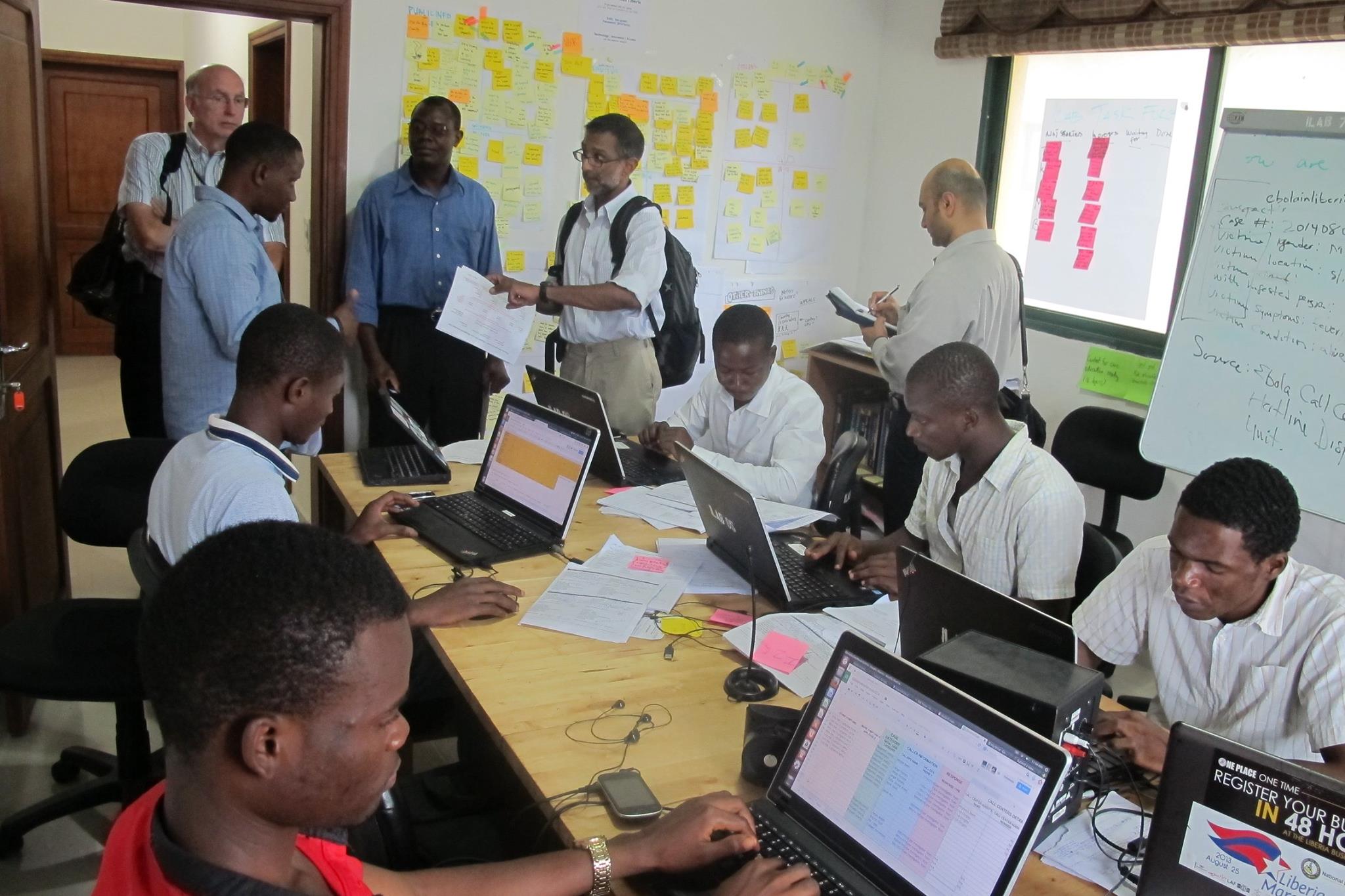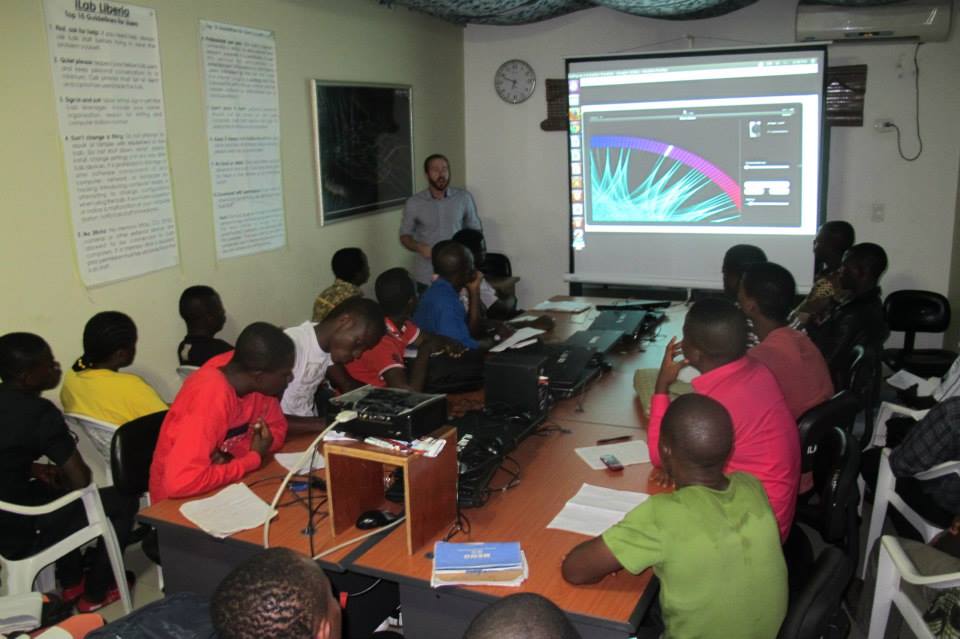African Tech Hubs: iLab Liberia
 As part of our ongoing African Tech Hub interview series, we sat down with Carter Draper, Interim Country Director of iLab Liberia to ask him what it’s like to work in ICT4D in Monrovia and be bringing exponential technologies to help solve the country’s challenges.
As part of our ongoing African Tech Hub interview series, we sat down with Carter Draper, Interim Country Director of iLab Liberia to ask him what it’s like to work in ICT4D in Monrovia and be bringing exponential technologies to help solve the country’s challenges.
Code Innovation: Hi Carter. Thanks for sitting down with us. Tell us a bit about your background and how you got started in technology.
Carter Draper: I currently serve as Interim Country Director at iLab Liberia. My passion for computing goes as far back as to high school in 2000. Upon graduation, I enrolled at several local computer institutions – and opposed my father’s desire for me to study forestry and agriculture at the state university. I now hold a BSc in Electronics Engineering and a Microsoft Information Technology Professional certification from Koenig Solutions in New Delhi, India, in additional to several certifications for web development, coding, networking and hardware.
During the civil crisis of 2001-2003, I co-operated several Internet cafes, which then served as the major gateway to connecting families and relatives abroad. Immediately after the war, I was employed with the National Legislature – a post I merited as a result of my professional ethics and services rendered my nation while operating Internet cafes during the heat of the civil crisis.
I served for five unbroken years as Computer Technician at the Legislature, providing tech support to both the Senate wing as well as the House wing. While serving with the Government, I was also teaching Electronic Data Processing at the Stella Maris Polytechnic in Monrovia. In 2010, I got a scholarship to earn my MCTS and MCITP in New Delhi. Seven months after my return, I was employed by Ushahidi Liberia, a non-profit technology initiative that monitored the Liberian 2011 elections using technology.
Code: How did iLab Liberia get started? How are operations being run now?
Carter: iLab Liberia came into existence through Ushahidi Liberia operations. We realized the need for an open space for information sharing, access to Internet and incubating innovation, which Liberia was in dire need of then. It was with enthusiasm for technology, access and innovation for all. iLab is a technology hub that continues to narrow the technology divide in Liberia. Over our four years of operations, we have impacted doctors, teachers, students, the Government of Liberia, INGOs, NGOs, civil society organizations and grassroots intellectual groups, by providing them not only a space where they access the Internet for free, but take free courses and events as well as developing technology solutions to leverage the traditional ways of doing things here on the ground. iLab is a US 501c3, a non-for-profit organization that depends on donor funding for its operations. We’re a small organization with a staff of ten, including me, our Country Director.
Code: What is iLab Liberia’s business model?
Carter: To avoid depending on our donors to fund our entire annual budget, starting in 2013 we began charging INGOs minimal funds to collaborate with us. This is intended to allow us to generate 25% of our annual budget. However, due to the Ebola virus, there has been a huge drop in paid services, taking us back to depending fully on donor funding this 2015.
Code: Does iLab Liberia work in open source? What is your experience with the open source community?
Carter: Among the many things we do, open source platforms and applications are at the center. We’ve trained entrepreneurs, MSMEs, and startups in GNUCash, an open source version of QuickBooks, Scribus, for desktop publishing, Audacity for audio editing, Cinderella for video, as well as many other open platforms. All our systems run FOSS operating systems (Ubuntu, Linux) and we’ve encouraged institutions to take that direction by training them in Ubuntu, in addition to sharing copies of the OS to nearly everyone that visits our hub.
Code: What has been most challenging?
Carter: Unlike other tech hubs, iLab operates in an environment with no stable electricity, limited and very costly Internet connectivity, and very poor technology infrastructure. In fact, there is only one institution of higher learning in information technology or its related courses in Liberia. This has caused a very slow emerging technology community.
Code: What are your organization’s specific areas of expertise?
Carter: We specialize in promoting open source systems and applications, web technologies, mobile technologies, trainings and organizing tech events.
Code: What are the issues or problems that you care most about?
Carter: Liberia being a developing country, using technology to develop my nation is my highest dream.
Code: What projects are you most excited to be working on?
Carter: Innovative projects that tackle and contextualize real problems. Helping nearly every sector improve their service delivery through technology.
Code: What are your plans for the next few years and what sort of help do you need to achieve them?
Carter: My plan is to improve the skills of staff at iLab and to expand our mission and activities actively in rural Liberia. I will appreciate anyone who’s willing to help in the improvement of our staff abilities to continue and expand the work we are doing here with new expertise.
Code: What companies or organizations would do you most like to be connected to and why?
Carter: Companies that believe technology can improve the lives of people and processes in Africa as well as institutions that are willing to come to Liberia to share their expertise to help make this country a better place.



